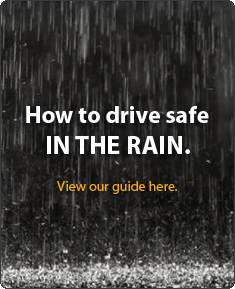News
Why there isn't a safe speed concept for cars like in marine navigation
Just because an expressway has a speed limit of 120 km/h does not mean that one can and should drive at 120 km/h.
BHPian Yash390 recently shared this with other enthusiasts.
As a navigating officer on cargo ships, I consider safety to be paramount in all aspects of life. Whether I'm working onboard, at home, while driving/riding, while changing a flat tyre, while operating power tools etc.
After seeing so many accidents on this thread caused due to inappropriate speeds, I started wondering why drivers don't keep the concept of a safe speed in their minds. In marine navigation, we have a convention called COLREGS (Convention on the International Regulations for Preventing Collisions at Sea), which can quite simply be understood as 'Rules of the Road'. It is practically a navigating officer's bible. It lays down guidelines for things like:
- Whose responsibility is it to get out of the way?
- Who would be culpable if a collision, or even a near miss, occurred?
- Who should do what at what point to prevent a collision from occurring?
All seagoing vessels are required to comply with these regulations. Due to these rules, traffic out at sea is somewhat regulated. All navigating officers are required to comply with these rules as any neglect in compliance can result in strict legal action, fines accounting to millions of dollars, forfeiture of licenses etc.
As expected, there are some complacent officers who don't follow these rules (just like careless drivers on the road). There are guidelines for different types of vessels, different types of waterways and different states of visibility. Although these rules are made for seagoing vessels, one particular rule comes to my mind which can be applied while driving also, known as 'Safe speed'.
Time and again it has been discussed on this forum what a safe speed while driving should be. Yes, it depends on various factors. Just because an expressway has a speed limit of 120kmph does not mean that one can and should drive at 120kmph. A driver must take full responsibility for his vehicle, and his actions, analyse the situation and then decide what his safe speed should be. Safe speed is not the same as legal speed. I incorporate this rule in my everyday driving/riding and it is really helpful.
I just want to share this with you.
Here is an excerpt from Rule #6 of COLREGS : Safe speed:

Do you see how similar it is to the driving conditions we face on the roads, and how we can incorporate it into our driving? Except for the last point, all have a practical application on the roads too.
PS - This rule applies in all states of visibility and I have not gone in-depth due to the vastness of the topic. I thought of this thread to be the most suitable to share something like this. Hope you like it. As always, drive safe.
Here's what BHPian gomzi had to say about the matter:
At least where I'm located and with people I've met/observed, a lot of people seem to be of the opinion that driving fast = good driving i.e. driving skill is equated to driving fast.
Even inside a residential society complex, speed breakers and those plastic rumble strips don't discourage many cars from going fast in the parking lot (relatively even 20 kmph is fast in a parking lot) where they endanger their neighbours.
Here's what BHPian Rohan265 had to say about the matter:
After conducting interviews of many drivers involved in road crashes, I have a couple of ideas behind the 'why'.
Lower risk perception
Many drivers I interviewed did not believe that their actions could have catastrophic results. They never even thought of the possibility that they could be involved in a crash and may even lose their lives. The risk of dying in a road crash is not internalised. Hence we see high-risk-taking behaviour. "This was my first accident and I never thought this could happen to me" was a common statement in many interviews. The lower risk perception is contrary to marine or air crashes where pilots, captains, and even passengers are more careful just because they have internalised that having a crash in such vehicles may result in death.
Lack of a systemic approach towards safety
I believe the acceptance of this risk is also the reason why air or marine travel is statistically safer than road travel. The whole safety system is designed to accommodate the high risk, unlike road travel where the system leaves safety up to individuals. More so in a country like India.
Low/no fear of consequences
This reason is often brought up in such discussions as it is true in most cases. Many drivers told me that they would not take similar actions if there was a police officer or some other check in that particular crash location. The lack of fear is linked to both the above points. As the risk is not internalized, drivers need an external source/influence to keep them safe. This is also a system failure as, unlike marine traffic, there are no severe consequences for breaking traffic rules or causing a crash.
Many may not agree, but we are too fixated on fixing reason 3 mentioned above. Increasing fines and penalties is not a bad solution. But, that should be the last resort while tackling this issue. I may be wrong but I don't think that most ship captains and air pilots are more cautious because of high fines and jail time. Either they internally have a lower risk-taking attitude or the system has many controls to prevent failures. The same needs to be applied to road safety through well-designed systems and risk-awareness programs. A driver that easily perceives the risks behind driving will naturally absorb all defensive or safe driving techniques. Self-preservation is one of the basic human needs.
However, I do agree that it is easier said than done.
Here's what BHPian Jeroen had to say about the matter:
There is an interesting difference between the international col regs and most if not all road and rule regulations.
The col reg has right of way regulation. But even when you have the right of way, the master of arhat vessel will have a responsibility to ensure safe passage at all times, by using all resources at his/her disposal.
What it means is that if ships collide, obviously it needs to be decided who had the right away. Once that has been established the authorities will also verify that the master the right of way took appropriate action to try and prevent and or minimise the imminent collision. This applies to any and all situations, not just right of way.
This is fundamentally very different from what tends to with road rules and regulations. If you have the right of way and we’re not breaking the speed limit the other guy tends to get the blame. If you crash into somebody from the rear, you are to blame.
So mariners compared to drivers start from a very different perspective, where they will be judged on their adequate ensuring safety of passage. Irrespective of whether there are idiots out there on the sea. Irrespective of whether they have the right of way. There are some very interesting court cases around the world in which this has been established as a matter of jurisprudence. My dad was a lawyer specialising in international transport and maritime law. When I was in naval college he told me quite a few courtroom stories.
Unfortunately, speed limits get broken at sea as well. About two weeks ago we had a very sad accident here in the Netherlands. A high-speed ferry and a high-speed water taxi collided. Four people were killed. Two persons, a dad and his son went overboard and are still missing and presumed drowned.
Both vessels were operating in a narrow channel with a speed restriction. Both were running well above the speed limit. They were in radio contact with each other and agreed on how they would pass each other. Standard procedure. Somehow they collided and four people lost their lives.
Coming back to the topic, I believe it is partly a lack of any formal training, poor examination and virtually no law enforcement.
I don’t want to offend anybody, but my experience in India has always been that nobody takes any rules particularly seriously. Those who do are ridiculed, or maybe foreigners?
No mistake, this cavalier and improvisation type of approach has advantages too. But on the road, it is going to get a lot of people killed and it does.
So I think it is all down to attitude. If you are not too concerned about your own life, why would you be concerned about somebody else's?
Check out BHPian comments for more insights and information.











_0_0.jpeg)

.jpg)





